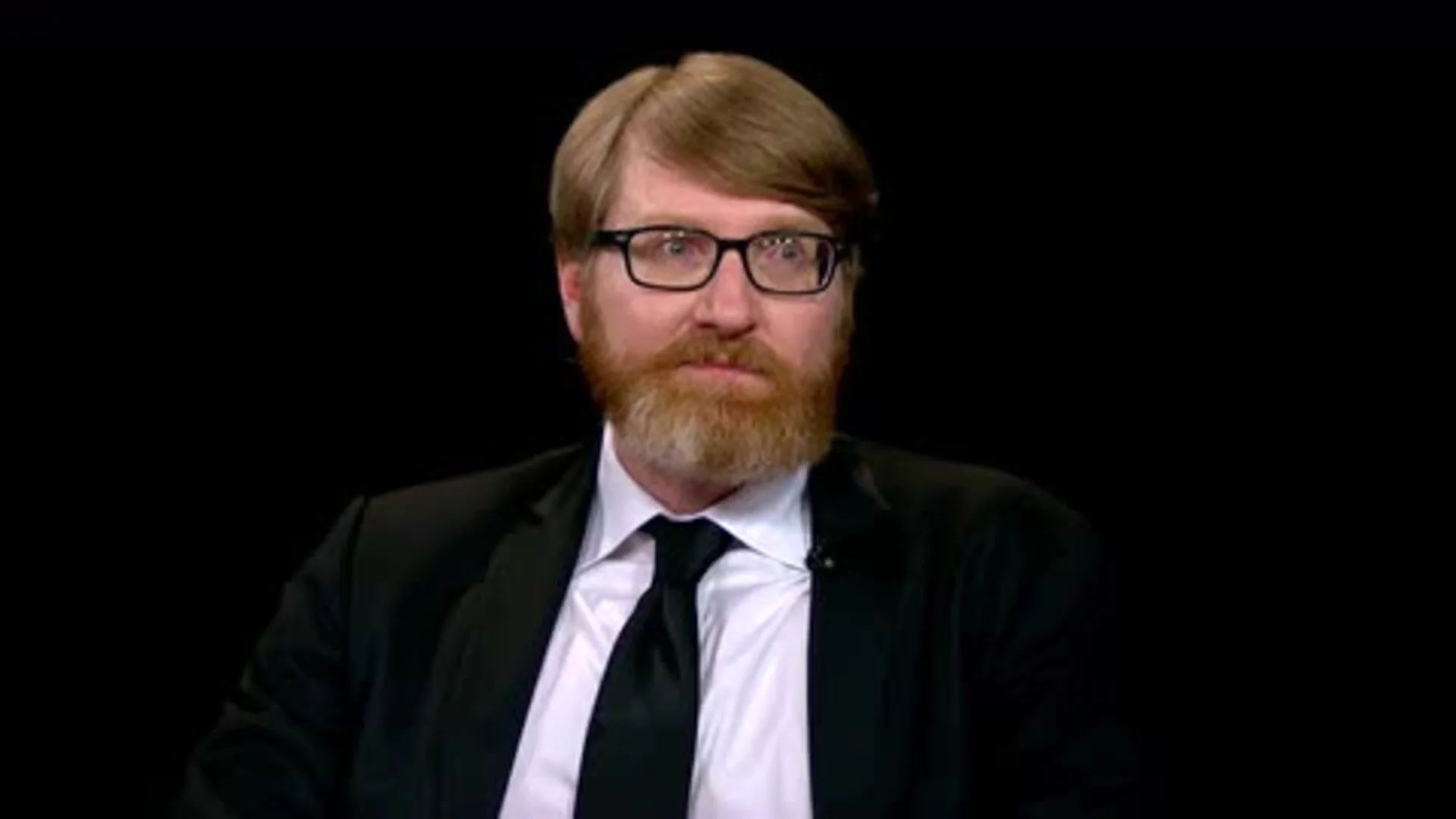Taking Back Fight Club
Everyone has seen Fight Club at least once and developed a strong opinion on it over the last twenty years. It's something you either unconditionally love, unconditionally hate or think is slightly overrated. There are no mild emotions involved when discussing this movie. I've seen it maybe forty, fifty times and read the Chuck Palahniuk novel eight or nine times. I do believe it's the most important book I've ever read.
So, I tend to look down on everybody else's opinion of Fight Club, because there is no way in hell anybody obsessed over it more than I did since 1999. It doesn't stop people from having shitty takes on the movie and scapegoating it for every evil that has blossomed since then. Last year, the Guardian published a piece about Fight Club being the genesis of the alt right movement. Earlier this year, Broadly accused Fight Club of being a handbook for men's rights advocated and pick-up artists.
And, you know what the worst part is? I can see why they think that. Internet-dwelling troglodytes have reappropriated whatever in pop culture that fitted their narrative and claimed it as their own in order to borrow themselves a credibility they never had. I've hesitated a long time before writing this piece because it really is a no-win situation for me, but I refuse to let them have it. So, fuck you. I'm taking back Fight Club. Alt right can't have it. Men's rights activists's can't have it. People who want to blame it for their problems can't have it either.
Here is why I love Fight Club and how it made me a better person.
What Fight Club is really about
Fight Club is a novel about an alienated office dweller fighting his imaginary friend on nights and weekends in order to feel better about himself. So, what he's really doing is punching himself in the face repeatedly until someone is kind enough to start fighting with him. It's the story of someone who really hates himself and doesn't know how to change his life. So, he does the only sensible thing someone in his position would do: he starts destroying himself.
The thesis of Fight Club is that you have to destroy the image of yourself you don't like in order to create another. That your new self will emerge from the wreckage of the old. It took me years to put it in words, but it lead me to a mixed martial arts gym at the first opportunity. So, I stepped in the ring and started swinging at the the person I didn't like : me. And guess what happened?
After a night in fight club, everything in the real world gets the volume turned down. Nothing can piss you off. Your word is law, and if other people break that law or question you, even that doesn't piss you off.
Nothing was solved when the fight was over, but nothing mattered.
I’m breaking my attachment to physical power and possessions, because only through destroying myself can I discover the greater power of my spirit.
All of that is true. It works, I lived it. And what I'm going to say might be a boring cliché, but if you haven't experienced it yourself, it's impossible to understands its liberating power. I would've never met Josie without fighting. I would've never started writing this blog. You would've never known me. The person I am today is the direct result of me destroying the person I didn't like being for ten long years.
And this is all in the book too. I've re-read Chuck Palahniuk's novel last week and while I can admit it's not the best written book of all-time, the answer I've found in it then are still in it now and they're as powerful as they once were. The narrator is destroying himself physically with fist fights, but he's also destroying himself professionally by turning away from his job and personally by moving into an abandoned building in the middle of an industrial wasteland.
When he achieves complete transformation by shooting himself in the fucking face (can't destroy the image of yourself more than that, really) that he actually KILLS TYLER DURDEN. I repeat, TYLER DURDEN DIES AT THE END OF THE BOOK/MOVIE. IT'S THE ENTIRE POINT OF IT. I know how seducing his two cents philosophy can be to people in emotional distress, but Tyler Durden is a death drive that you're supposed to get rid of once it accomplished what it was supposed to do.
Project Mayhem and the criticism of consumer culture
The Project Mayhem segment was always my least favorite of Fight Club because it leads to easy conclusions. People get blinding by how cool it is to fight the system in such an individualistic way and lose sight of the greater picture. Project Mayhem is when the narrator's life gets out of control, where he becomes narcoleptic again and everything he built at the fight club starts coming undone. There's an entire layer to it that people choose to ignore because it's less life-affirming when you acknowledge it for what it really is.
In the end of Fight Club, the people in Project Mayhem bomb the headquarters of credit card companies and reset the counter to zero. But it ends conveniently on a spectacular sight of the monoliths of the financial industry collapsing in the street, just like most romance movies end up with the guy kissing the girl for the first time. What happened after that? Did anything change at all? Could they maintain the fire and the passion in the relationship or did Project Mayhem dwindle and break up with its ideology in the following months? Anyway, it was the logic evolution of the Fight Club, like Tyler Durden says. So it was inevitable in many ways...
Project Mayhem works a little bit like a virus. Once people get infected with the desire to destoy their self-image, it's only normal that they want to destroy the world they're in. If everyone gets infected with the virus of self-renewal through self-destruction, society is the next logical thing to change. Everyone is infected in Fight Club. Even the cops are, so destruction becomes inevitable since the people in charge of stopping it are active participant in it. Which leads me to the object they decide to destroy : credit. The cornerstone of financial enslavement.
Lots have been said about Fight Club being a bunch of angry white dudes living their toxic masculinity together and it definitely is a shortcoming of the movie in hindsight. Diversity was apparently not an issue in 1999. I want to bring your attention to what Project Mayhem is destroying, though. Credit. They're not exactly waging war against Black Lives Matters here. They're a bunch of angry white dudes waging war to a bunch of old, condescending white dudes. While Fight Club's lack in diversity lead to intolerant groups claiming it at their own, I don't doubt that if it was remade it 2017, it would feature women, people of color, trans, etc.
Anger doesn't have a gender or a skin color. It's something everybody can feel.
Tyler Durden and Fight Club 2
I know what you're going to tell me: Chuck Palahniuk wrote a sequel to Fight Club in 2015 and Tyler Durden's still alive in it. Tyler's immortal because he's just an idea, hence his power, yadda, yadda. Sure, buddy. But if you've actually read the thing (and I did), you'll find a very different iteration of Durden. He's nowhere near as sexy and life-affirming as he is in the first book because he was never meant to be so. And it's been a thorn in Chuck Palahniuk's foot for all these years. A monster he's been trying to exorcise ever since.
That's why the book is a metafictional graphic novel and that's why he says that in it: Human beings don't cultivate ideas. On the contrary...ideas cultivate us.
Fight Club 2 is about the power that ideas hold over individuals. How they can control who your become and actually make you become someone you don't want to be. It's delivers the opposite message the original Fight Club did and its very existence is an attempt by Chuck Palahniuk to put distance between himself and the sexy hunk Brad Pitt portrayed that every keyboard-wielding loser pretends to be from behind their computer screen. Tyler Durden dies at the end of Fight Club and he was supposed to remain dead. The problem is that he was way too fucking sexy to die and became a cultural icon.
Fight Club is a novel about destroying your self-image to become someone you can bear to look at in the mirror. It helped me and I think it has the power to help lots of young people still. It's not about being alpha. It's not about how "real men" behave and it's not about toxic masculinity either. All of you missed the point.
So, fuck off if you think that.
I'm right and you're all wrong.






